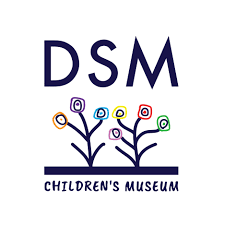Connecting the dots to financial literacy
Many nonprofit organizations are financially illiterate. Is yours?

Forming an audit committee. Filling your board with financially savvy members. Accumulating cash reserves for a rainy day.
When put together, these items form a picture of a financially literate nonprofit organization. But several experts agree that for smaller, cash-strapped nonprofits, connecting those dots can be a challenge.
In a recent study conducted by The Center on Philanthropy at Indiana University, researchers spoke with more than 500 nonprofit professionals to measure their financial literacy.
The researchers asked three questions relating to bond prices and interest rates, investment risk, and diversification. Only a little more than one-third of those surveyed, or 36.4 percent, were able to answer all three questions correctly. About 32 percent could answer two questions correctly.
The study also found that financial literacy increased as organizational revenue increased. Nearly 45 percent of representatives of organizations with revenues of $5 million or more were able to answer all three questions correctly, compared with 26.4 percent of those with organizations with revenues of less than $1 million. Among respondents with organizations with revenues less than $1 million, 15 percent did not know the answer to any of the three questions.
“Larger nonprofits have the ability to hire a professional staff,” said Karla Jones-Weber, chief financial officer and director of administration for the Community Foundation of Greater Des Moines. “Smaller organizations don’t have those resources; they’ll have other staff fill that role. But at some point, the executive director has too much going on, or the volunteer is not going to have enough time.”
The recession has hurt nonprofits, Jones-Weber said, adding that they are expected to do more with less. And though donors have kept charitable giving at the top of their priority lists, they want to know if their dollars are being handled properly.
“Nonprofits need to be run like a business,” she said. “The financial aspect has to be paid attention to, and sometimes it’s put on the back burner because the programs are so important.”
Experts agree that regardless of a nonprofit’s size or revenue, certain precautions should be put into place to ensure that donors’ dollars are being well taken care of.

Contracting out financial help
Having limited resources and a limited staff is a problem many nonprofit organizations face. To assist with these types of challenges, groups can enlist the help of a third party to look over their finances and bookkeeping.
When looking for a firm, it is important to find one with knowledge about nonprofits, because many requirements that are important in this sector, such as Form 990 tax filings, tracking restrictions on gifts or donations, and federal grant money, don’t apply to for-profit companies, said Brent Alexander, a shareholder with West Des Moines-based Brooks Lodden P.C.
“It’s important to develop a working relationship with an accounting firm. You need a firm with a working knowledge,” he said
Susan Davis, a certified public accountant and assurance partner with McGladrey LLP, pointed out that accounting firms don’t have to meet any special requirements in order to work with nonprofits, so it is important that groups ask tough questions regarding an accountant’s experience.
“Who else do they serve, and what do these organizations look like? Have they ever been before the IRS and what was the outcome?” she said. “Make sure you get someone with experience and not someone just looking for a fee.”
Jones-Weber said the Community Foundation began offering an accounting service several years ago to fill this need. The program has grown dramatically over the past two years, she said, and it now has 17 clients who use its accounting services.
Another option is contracting with an accounting firm for consulting purposes or to conduct an audit to ensure that an organization’s house is in order.
“Audits are expensive, but they are more of an investment in an organization,” Jones-Weber said, adding that audits also add credibility to a nonprofit. “They are a huge undertaking and can be a big step to take.”
But by undergoing an audit, organizations are able to give donors assurance that their funds are being managed properly, said James Pistillo, also a shareholder at Brooks Lodden.
Continuing education
Ever-changing tax codes, new legislation and obsolete laws are another roadblock that can cause nonprofits trouble in the financial sector.
“Nonprofits need to continue to educate themselves,” Jones-Weber said. “The staff has the responsibility of having oversight over other people’s dollars.”
Although it can sometimes be difficult to find educational opportunities, even taking a finance or accounting class at a local college or university can be helpful, she said.
Nonprofits can also use resources offered by firms such as Brooks Lodden and McGladrey, many of which are free.
Brooks Lodden holds a not-for-profit industry update each year, which discusses nonprofit taxation updates, legislative updates, new employment laws and nonprofit accounting updates.
Meanwhile, McGladery has put together a speakers’ bureau that discusses similar topics and pitfalls, and sends out a monthly newsletter that updates its clients on changes in these areas.
Storing up cash reserves
Building up a cash reserve can be very difficult, especially in this economy when donations are down and needs are up, said Jones-Weber. However, it’s equally important to have a resource in case something unexpected happens, she said.
Earlier this year the Community Foundation conducted a survey that looked at local nonprofits’ strengths and struggles. Among its findings were that nonprofits are doing better financially than in years past and more are storing up cash reserves. There was a 5 percent increase in nonprofits holding on to a cash reserve of four or more months between 2010 and 2012.
But there is still a great need for organizations to build up their cash reserves. The survey found that about 7 percent of nonprofits have a cash reserve adequate to cover expenses for one month or less, and 8 percent of nonprofits have no cash reserve.
This can be problematic, Alexander said, if a group loses a grant due to tightened funding standards.
“Your funding source may dry up, but you’ve got to keep the doors open,” Alexander said. “Donors want to contribute to those groups who manage funds well.”
Having a financially savvy board
Finding board members who are knowledgeable about financial matters is just as important as filling a board with members passionate about a nonprofit’s mission, Pistillo said.
“Too often there are board members without any financial literacy but (who) have a real passion for the mission of an organization and vice versa,” he said.
However, a nonprofit’s small size makes it even more important that it has a strong board.
“Nonprofit organizations typically run lean and mean,” Alexander said. “It can be difficult to acquire and retain employees with a high level of financial literacy. That’s why it’s important to supplement your staff with a financially minded board of directors.”
Jones-Weber agreed, pointing out that the Community Foundation has held seminars over the years to train board members on various aspects of nonprofits, including the financial side.
“It’s very important to have at least one financially minded person on the board to help the rest of the board understand what’s going on,” she said.
What’s more important is putting a monitoring mechanism, such as an audit committee, into place. The audit committee should work closely with the executive director, look over the budget process and make recommendations to the board, Davis said.
“On the board level, there are a lot of different things they have to look at, so (finances) can get lost in the shuffle without a group dedicated to it,” she said.
But only 39.3 percent of organizations reported having an audit committee, according to the Indiana University survey. The majority, 60.7 percent, did not have one.
Davis, who currently leads the audit committee for United Way of Central Iowa, said nonprofits can fine-tune these committees to meet both their financial needs and their members’ time restraints.
“You don’t necessarily need people on the audit committee that are also on your board,” she said, adding that she serves on the Girl Scouts of Greater Iowa’s audit committee but does not sit on its board. “You just need those folks to put attention on financials. There is great value in having people with financial acumen guiding the ship.”












